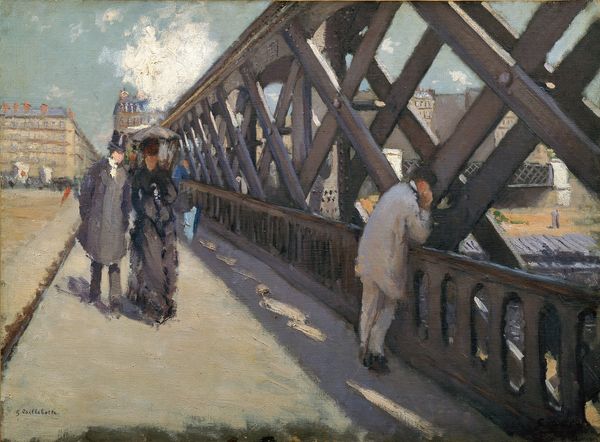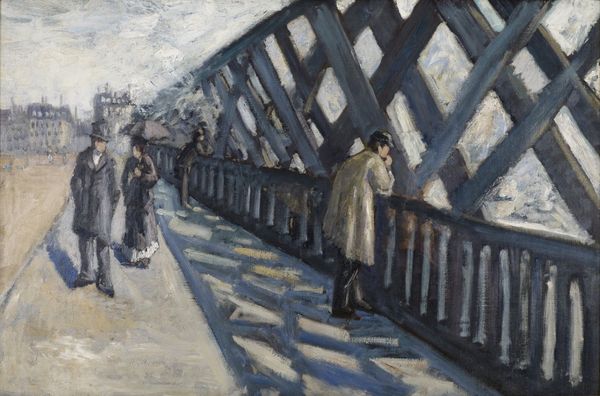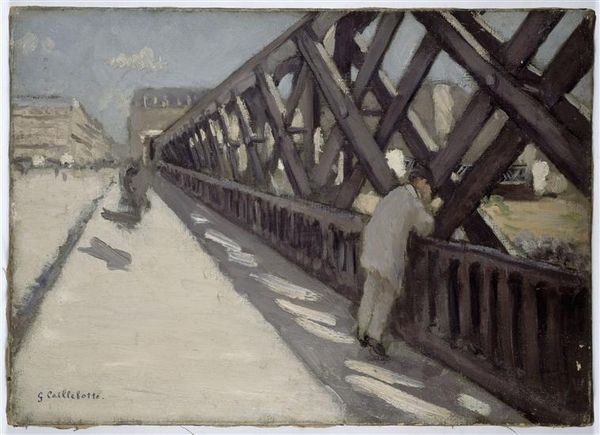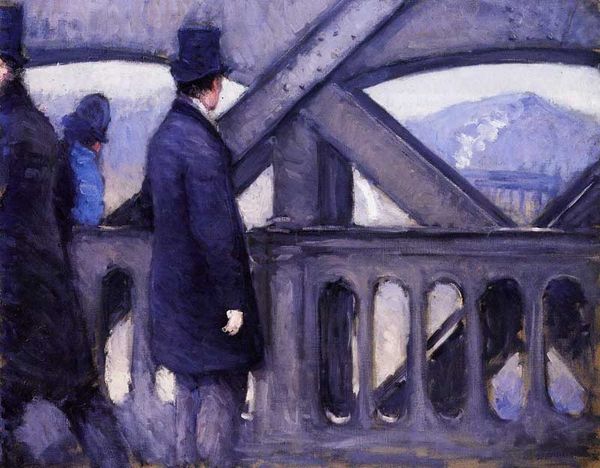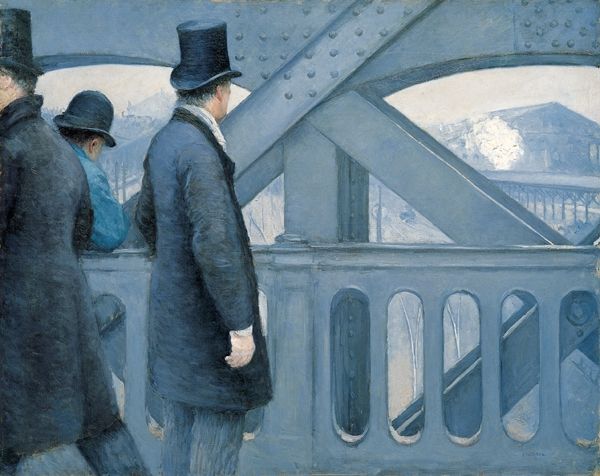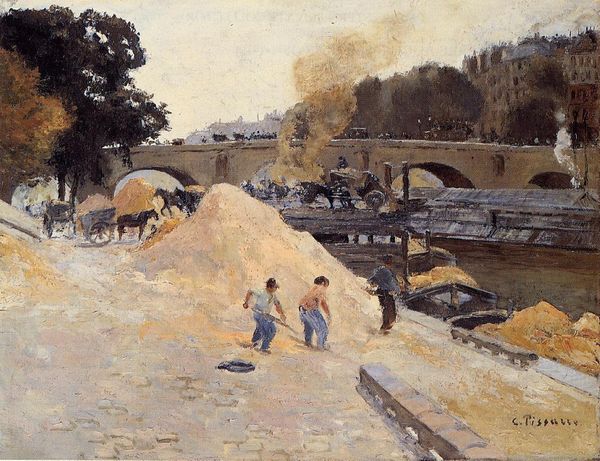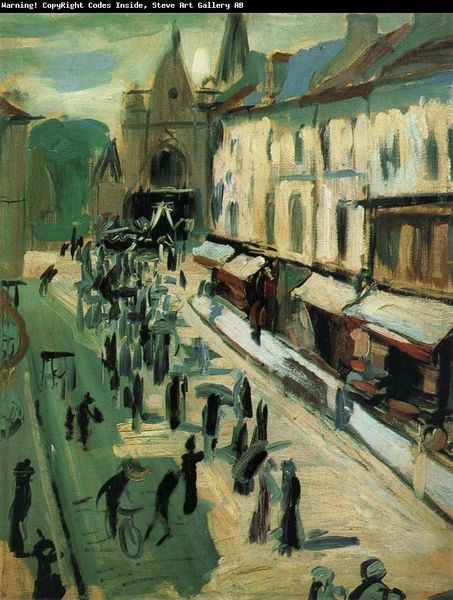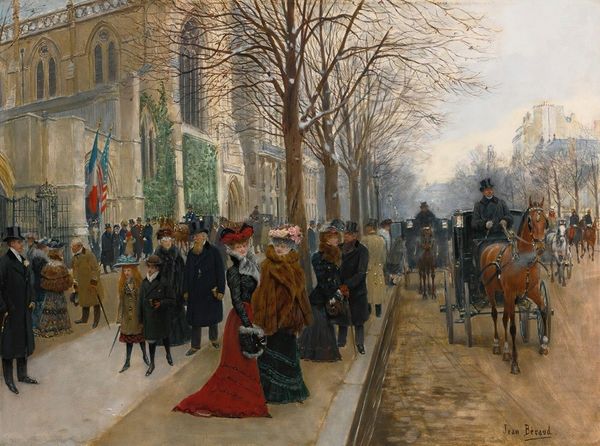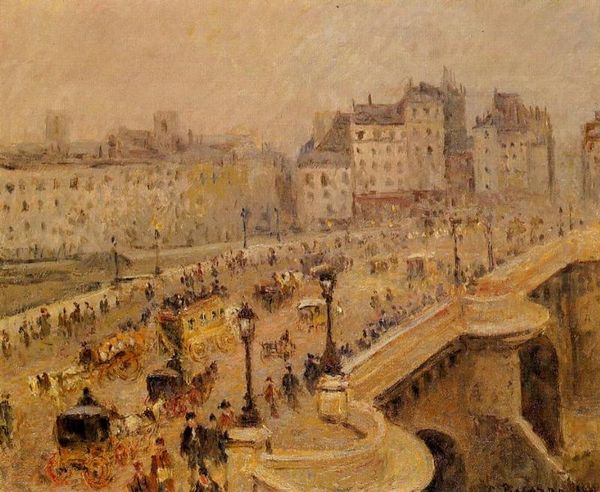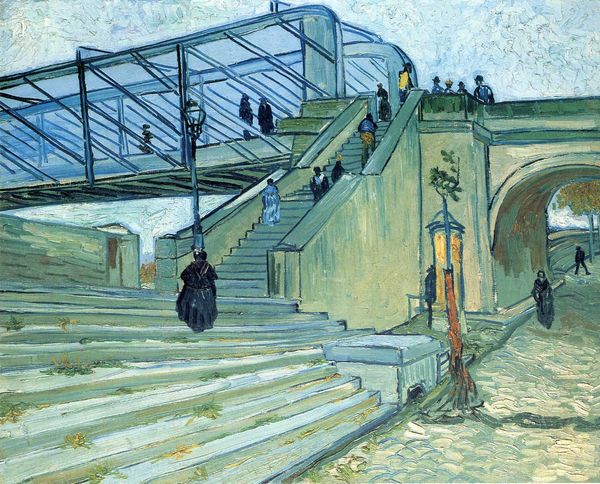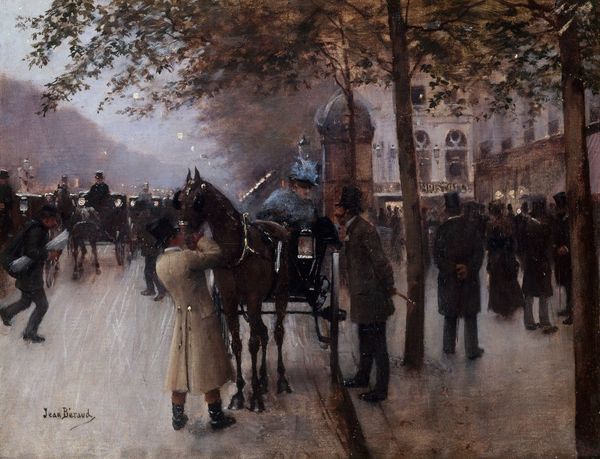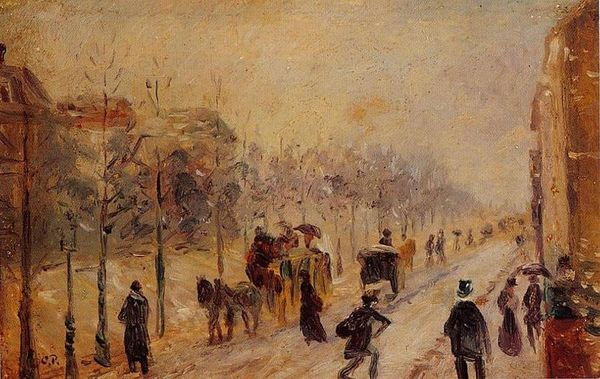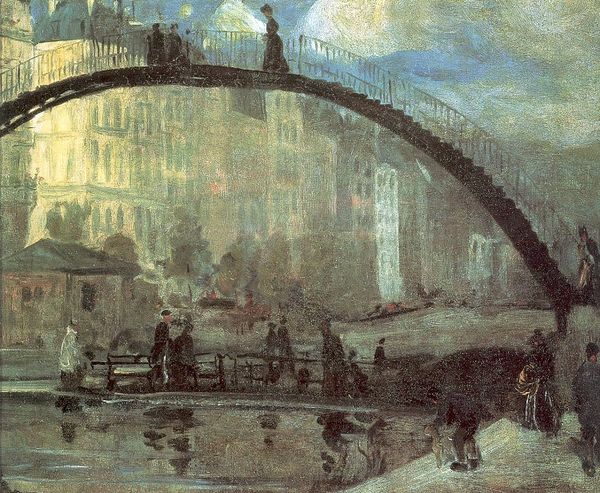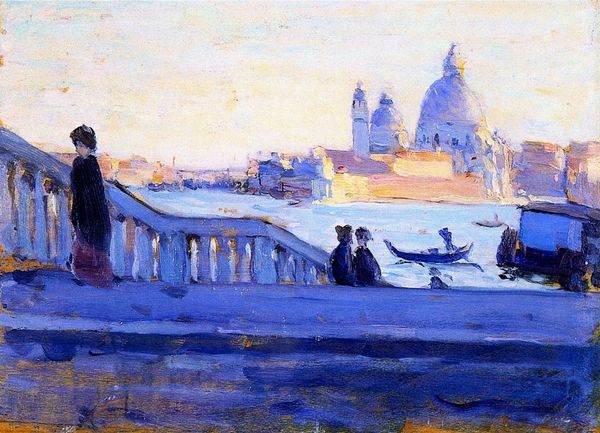
Le Pont de L'Europe 1882
0:00
0:00
gustavecaillebotte
Private Collection, Petit Palais, Geneva, Switzerland
painting, oil-paint
#
flâneur
#
painting
#
impressionism
#
oil-paint
#
landscape
#
oil painting
#
cityscape
#
genre-painting
#
modernism
#
realism
Dimensions: 125 x 181 cm
Copyright: Public domain
Editor: Here we have Gustave Caillebotte's "Le Pont de L'Europe," painted in 1882 using oil paints. There's almost an alienation in the image that strikes me, especially with that figure leaning over the bridge, away from the others. How do you interpret this work? Curator: That sense of alienation is key. Caillebotte presents a scene of modern Paris, but not one of celebratory progress. Consider the iron bridge itself – a symbol of industrial advancement, yet here it cages the figures within a rigid geometry. The 'flâneur', often a figure of privileged observation, seems troubled, detached. How might this reflect the anxieties of rapid urbanization and class divisions during the late 19th century? Editor: I see what you mean. It's like the bridge, meant to connect, is actually isolating these people. The composition even directs our eye away from the figures walking, towards that solitary figure. Curator: Precisely. And what about the woman's attire and the man with the top hat? How do these details speak to issues of identity and social performance in Parisian society at the time? Consider the restricted roles dictated by class and gender. Editor: I didn't think of it that way before, but their clothes do set them apart, almost like costumes. The painting feels like more of a social commentary than just a street scene now. Curator: It encourages us to look beyond the surface, doesn't it? By paying attention to those who are included and excluded, we can start to understand the politics of looking, and how art reflects these realities. Editor: Absolutely. Thanks for pointing out the social and political angles! Curator: My pleasure. Art like this is always richer when we see it through an intersectional lens.
Comments
No comments
Be the first to comment and join the conversation on the ultimate creative platform.
